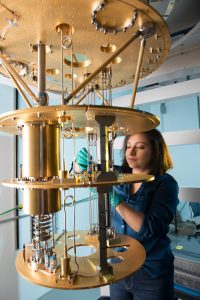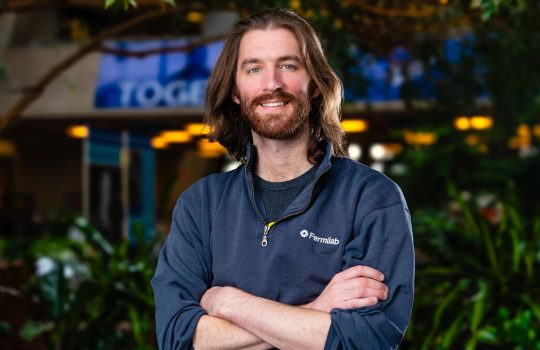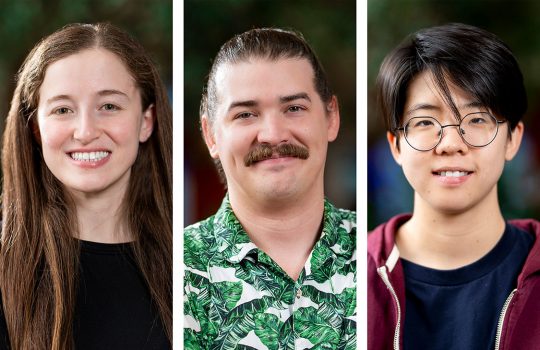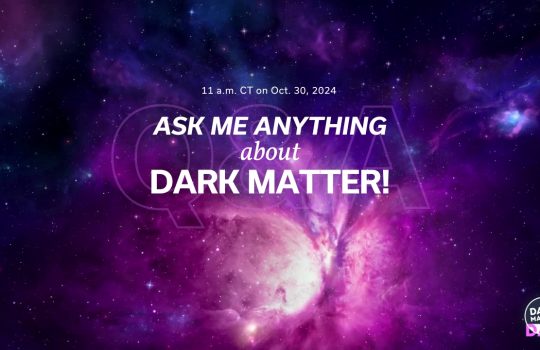
Fermilab scientist Rakshya Khatiwada works on a qubit-based quantum sensor experiment, which will be developed into a future generation of a dark matter detector. Photo: Reidar Hahn
How long have you been with Fermilab?
I’ve been here a couple times actually, but I’ve been in this particular position nine months or so. Before I got my current position, during my undergraduate, in 2007, I was one of the Fermilab summer interns. After that, I came back from 2008 to 2009 and got to continue that work. Then I went to graduate school and worked at the University of Washington in Seattle for a bit as a postdoctoral researcher. As it turns out, I got to come back and work here again at the end of July 2018.
What is your role here at Fermilab?
I lead the detector development for the Axion Dark Matter eXperiment—ADMX for short. We recently finished fabricating this new detector for the upcoming run, which is very exciting. I’m also managing the electronics branch of ADMX. The other project I’m working on involves developing qubit-based quantum sensors. The idea is that qubits could potentially be developed into future generations of dark matter detectors.
What about your job makes it easy to get up in the morning?
I like to think of the bigger picture when I am buried in everyday work and lose sight of why I am doing what I am doing. I’m lucky because we’re in an exciting time regarding ADMX. We are actually the leading experiment for axion searches in the world. On any given day, we could discover an axion. Plus, ever since I was little, it was my dream to be a physicist, and here I am working on exactly what I always wanted to. I sometimes have to stop and remind myself how lucky I am to be living my childhood dream.
What do you like most about working at Fermilab?
I really like how Fermilab puts a strong emphasis on wellness and well-being. They offer these yoga and Pilates classes. I actually took a couple of those last year, which was awesome. It also has plenty of fun events happening throughout the year that everyone is encouraged to take part in. It honestly just feels like a community that you don’t necessarily get elsewhere.
When you’re not searching for axions, what do you like to do in your spare time?
I have a puppy, Tulu. She’s just a year old. I really like playing with her. We try to take walks whenever the weather allows it. I also really like trying out different foods with my partner when he’s in town. I try to reach out to young people to discuss various career-related issues, whenever I have time. I organize lunches that we informally call “Women in Science.” These include postdocs and graduate students who discuss topics pertinent to academic women. Those types of informal talks are really fun. In addition, I enjoy advising students outside the United States regarding undergraduate and graduate school applications, scholarships and available opportunities in a scientific career. I also give talks on physics through webinars to people outside the United States, usually in Nepal, since I grew up there.
To learn more about ADMX’s search for dark matter, watch this 3-minute YouTube video.



